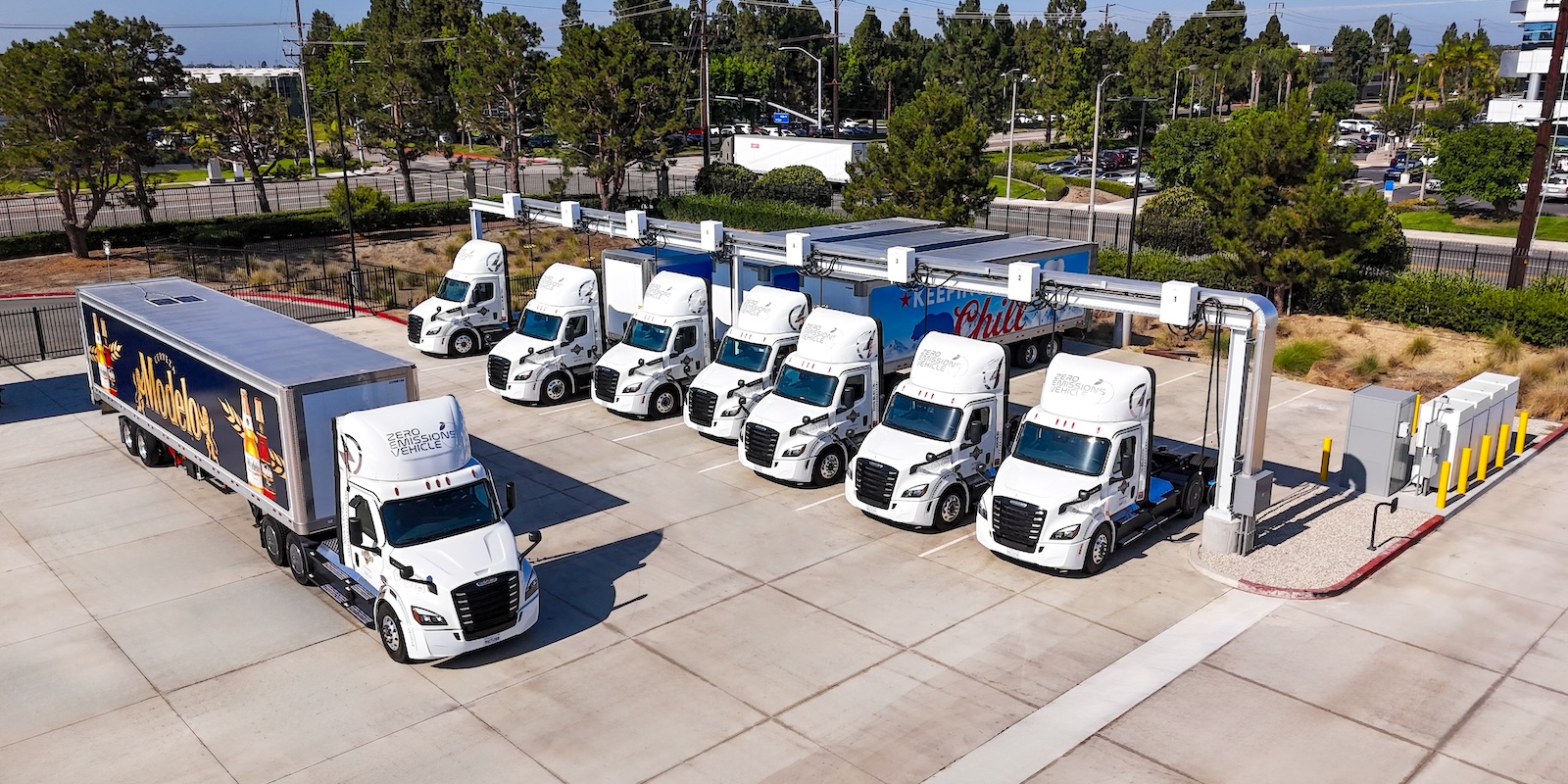
Daimler Truck North America has helped alcohol distributor Reyes Beverage Group deploy fully 29 zero-emission Freightliner eCascadia Class 8 electric semi trucks in its California delivery fleet.
Reyes Beverage Group (RGB) plans to deploy the first twenty Freightliner electric semi trucks at its Golden Brands – East Bay and Harbor Distributing – Huntington Beach warehouses, marking the first phase in the company’s transition to a fully zero emission truck fleet by 2039. An additional nine eCascadia Class 8 HDEVs are scheduled for delivery to RBG’s Gate City Beverage – San Bernardino warehouse before the end of 2024.
RBG’s decision to adopt the Freightliner eCascadia builds on its recent transition to renewable diesel and its ongoing idle-time reduction program. These electric vehicles (EVs) “go electric” will contribute significantly toward the company’s stated goal of reducing its carbon emissions 60 percent by 2030. These 2 trucks will save some 98,000 gallons of diesel fuel annually, and avoid putting nearly 700 metric tons of carbon dioxide and other harmful emissions into California’s air each year.
“We are excited to be among the first in our industry to adopt these electric vehicles,” explains Tom Reyes, President of RBG West. “This is a significant step toward our sustainability goals and ensuring compliance with state regulation as we transition our fleet to EV.”
Freightliner’s eCascadia electric semi trucks offer a number of battery and drive axle configurations with ranges between 155 and 230 miles, depending on the truck specification, to perfectly match customers’ needs without compromising on performance and load capacity. RBG’s Freightliner eCascadia tractors will rely on electric charging stations installed at each facility, allowing them to recharge to 80% capacity in as little as 90 minutes for RGB’s trucks, which feature a typical driving range of 220 miles as equipped.
Electrek’s Take
Food and beverage trucks operate everywhere – not just at the ports but in urban population centers, too. That means they’re pumping out harmful emissions right where a lot of people live and work, and that’s no bueno, making the electrification of these vehicles a no brainer for anyone who cares about the quality of life of the people who live and work near them.
SOURCE | IMAGES: Daimler Trucks.
